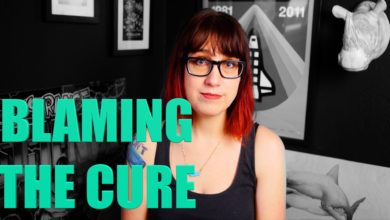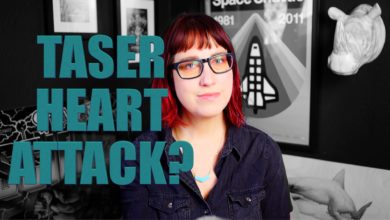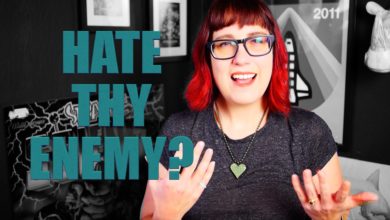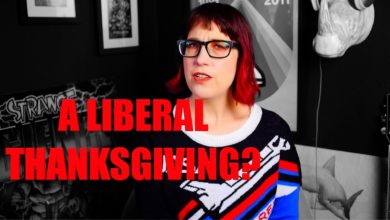
I recently saw a social media post shared by a dear friend that showed two men reaching out to shake hands… one holding a huge “Trump” flag and one holding a huge “Biden” flag. The caption was something along the lines of rejecting hate and coming together… and that got my hackles up. I was immediately reminded of the quote by Robert Jones, “We can disagree and still love each other unless your disagreement is rooted in my oppression and denial of my humanity and right to exist.” Why the heck am I going to shake hands with someone who supports a leader whose actions, words, and policies have been downright dangerous to me and to my neighbors?
But as I thought about it, I knew that I wanted to see peace and reconciliation in my lifetime. I know that the most effective way of reaching people is through compassionate dialogue. And we, as a society and as a nation, are so, so, SO far from that right now.
We’ve all heard over and over again the story of how American is more politically divided than ever. As someone born in the mid-80s, I don’t think I’ve ever known a time in my politically aware life when national politics wasn’t completely divided between the Democratic and Republican parties. Now, however, the “left-right” divide has seeped into our individual identities and our everyday lives. “Negative partisanship,” or rallying around the concept that “they are the bad guys” dominates political discourse from U.S. Senate to city council. How we got here is a long enough story that it’s hard to imagine how we back out of it.
But wait, doesn’t that make it sound like this is a “both sides” issue? Isn’t that a false equivalence? After all, 45 is famous for countering concerns about extreme right-wing violence by blaming violence on the left. Yet, right-wing extremists are responsible for 76% of domestic extremism-related murders in the last 10 years whereas left-wing extremists have been implicated in 3%. But you try telling that to someone who’s never even been on the ground at a Black Lives Matter protest, and thinks “they’re all criminals.”
Both-sides-ism misrepresents the situation, but bifurcating ourselves into two separate spheres has been completely untenable. So how do we get out of this mess?
A key to this is recognizing that, just like gender, political ideology isn’t binary. Setting aside those most stubborn of extremists, most people fall somewhere in an amorphous, multi-dimensional blob of opinions, needs, fears, desires, and beliefs. Slicing that blob down the middle and calling one side “right” and the other side “left” is a dangerous oversimplification, one that I think we’re all guilty of now and again. But many of us came to skepticism because we know our brains aren’t paragons of clear and unbiased decision making. Humans very easily show time and time again that we can hold contradictory beliefs in our heads, do all kinds of mental gymnastics to justify our beliefs, and hold on to beliefs even more tightly when challenged by evidence. That’s not even to mention the obvious but often forgotten fact that a person’s beliefs, values, and politics may change radically over time. But that binary distinction has forced many of us to line up on one side or another, which does not allow for critical thinking through difficult and complex problems in society.
I’m not just saying this to “humanize the other” as we are often called to do in calls for civility. Rather, I think this is a fundamental part of overcoming the oppressive power structures that we are railing against. How often have you pointed out a person’s statement or behavior that is racist or misogynist just to have that person’s friend swear that they are a “good person” or “liberal” and so they can’t be that bad. That’s. Not. The. Point. The danger inherent in always demonizing the “other” is that we fail to recognize how we and our friends and our allies unconsciously, or even consciously, participate in oppressive behaviors and hold up the status quo ourselves. Sure, it’s easy to demonize a wealthy old guy that you don’t personally know, but MY friend he’s NOT like that. Some abusers even cultivate that shield of respectability to discredit their victims. However, much more frequently, it denies the person who said or did the harmful thing a chance to reflect on it and learn from it.
We’re not sorted into “bad guys” and “good guys” here, as a recent bystander training reminded me. We are ALL capable of experiencing harm, of doing harm, and of preventing harm to others. This seems especially important in liberal white spaces where we have long denied our own complicity in upholding the racist structures that do real harm to people of color… or, in other words, the racism is coming from INSIDE THE HOUSE.
It should not be the job of the oppressed to educate the oppressor. All too often, that seems to be forgotten in calls for civility. That’s where the destruction of the “us/them” binary can help. When we start to recognize the problematic beliefs and behaviors in ourselves and in our communities, then we can begin to address them with our peers. This is where I, as a white woman, can effect changing attitudes towards racism, or how my husband can call our friends to task when they say something sexist. Then we can have those conversations that may bring a friend or colleague to see something in a way that they never had before through techniques such as sustained dialogue. It seems far too impossible to reach all the way across the wide divide to someone who is a complete stranger. But we can build on our pre-existing relationships, the ones that haven’t already frayed and shattered at least, to finally tip the scales, at least on the most basic issues of human rights.
And guess what? If you’re really having a dialogue, you’ll find yourself reflecting on your own beliefs and growing, too. If I’ve learned ANYTHING from my too many years of formal education and the last several years of seeking out voices that a very different from mine, it’s that I know very, very little of what there IS to know and experience.

Interestingly, being that person in your peer group can often get you labelled as a “radical” used with a negative connotation. “Why do you always make it about race?” or “Not everything is about sexism.” “Be more reasonable.” The word radical here really means a large deviation from the status quo. The status quo makes people comfortable, so of course anything radical is seen as uncomfortable. But what if being radical just means that you are applying a new lens (or better yet, lasik) to your every day life? Then radicalism isn’t something that is “good” or “bad.” That depends on the lens. Maybe that lens is racial justice. I don’t mind being radical for dismantling all the ways in that racial injustices have affected our society and our lives. Or maybe that lens is white supremacy, an ideology that is fundamentally oppressive and violent. And that, unsurprisingly, leads to violent results. The rise in the number of people choosing to view the world through that lens is the radicalization that we should ALL be worried about.
I honestly don’t know if there is a peaceful way out of this, but I hope there is. The tension leading up to this election is a source of anxiety heaped onto an already monstrous load of it brought on by the COVID-19 pandemic which itself was really just the icing on the shit-cake of a disastrous presidency. But I do know one thing, that without critical self-reflection and a willingness to call in our peers, we’re not making anything better. I’m not ready to shake the hand of a random Trump supporter in the street. But even within my own little “liberal bubble,” I know that the work of creating a more peaceful and just society means we can never stop learning and growing. And maybe, just maybe, I can connect to those friends who aren’t so “far left” and find common ground after all.





When you have a loved family member who is perhaps “politically misguided” this all comes to a head!
Like my Dad used to be slightly right of Ghengis Khan while I was slightly left of Mao Tse Tung (or maybe, better, Che Guavera). We used to have furious disagreements.
Over the years though we both moderated quite a lot, probably not only due to each other but interactions with and learning from other people as well.
I blame a LOT of the current divide on laissez faire social media. Sasha Baron Cohen had a take on this, whether you like his work or not, these comments make sense to me:
https://twitter.com/Phing7464/status/1319655561579925515
Glad to hear you and your dad have had a relationship despite the differences of opinion!
Yeah, in the earlier days of Twitter, when I was trying to convince people it wasn’t just a “flash in the pan,”, I never could imagine it would be the political force it is now. Ugh.